- The paper presents a closed-loop framework (ATLASS) that dynamically analyzes, generates, and selects external tools to perform complex tasks using LLMs.
- It integrates components like Task Analyzer, Tool Master, and Tool Selector to reduce inference cost and ensure tool reuse via a structured JSON database.
- Experimental analysis shows that ATLASS improves task execution efficiency and adaptability compared to similar frameworks by minimizing redundancy.
Overview of ATLASS Framework
ATLASS is designed to enhance the capabilities of LLMs by allowing them to dynamically generate and select external tools to solve complex tasks. This framework is divided into three critical phases: Tool Requirements Analysis, Tool Retrieval/Generation, and Task Execution. The integration of a tool database facilitates the reuse of generated tools, minimizing inference cost and enhancing efficiency.
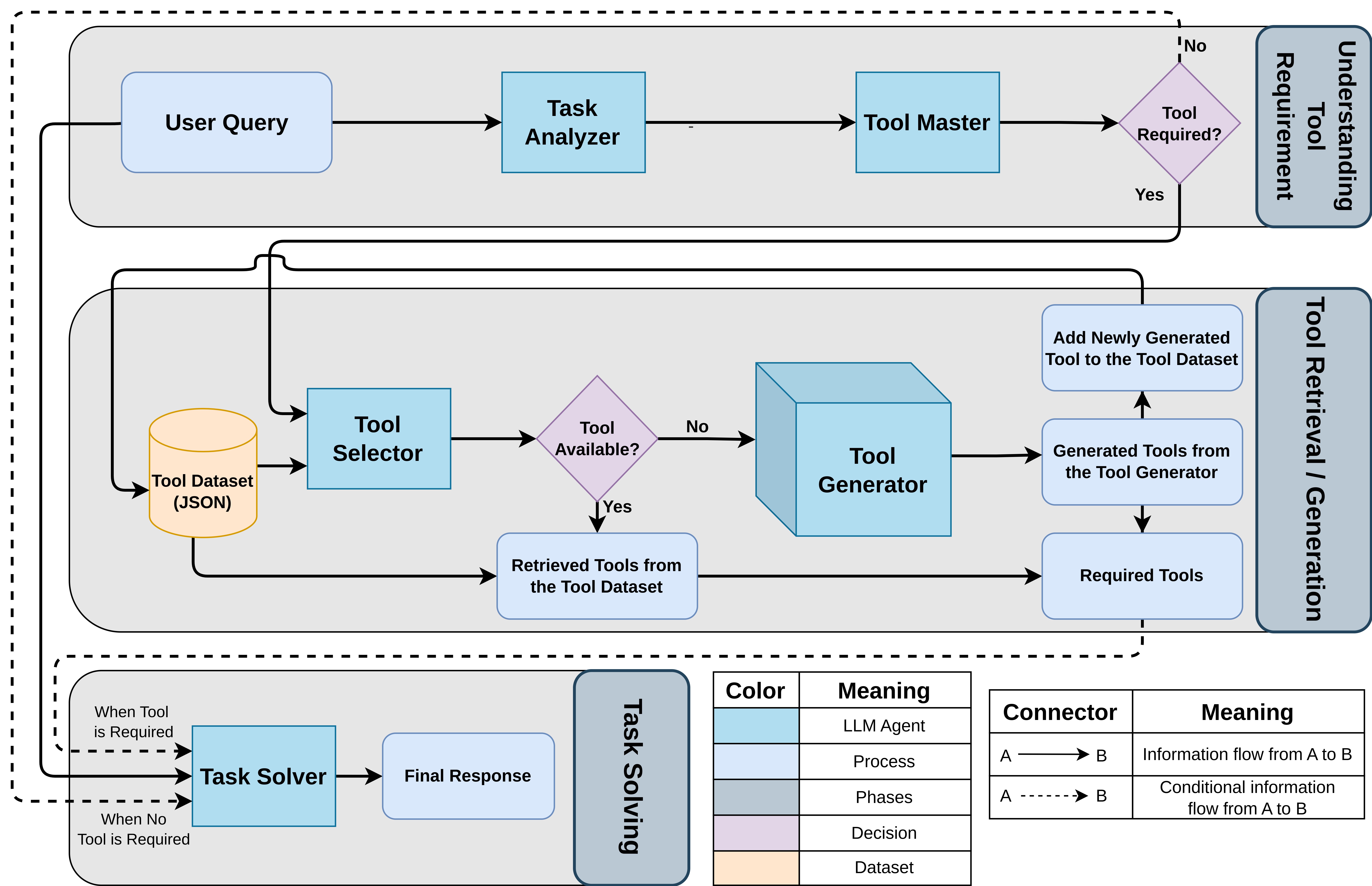
Figure 1: Overview of ATLASS workflow, with Tool Requirements Analysis, Tool Retrieval/Generation, and Task Execution.
The first phase involves determining the necessity of external tools through two key components: Task Analyzer and Tool Master.
Task Analyzer
The Task Analyzer component breaks down user queries into actionable subtasks, enabling efficient problem-solving by identifying specific tool requirements. This stage ensures that all potential needs for external tools are recognized at an early stage.
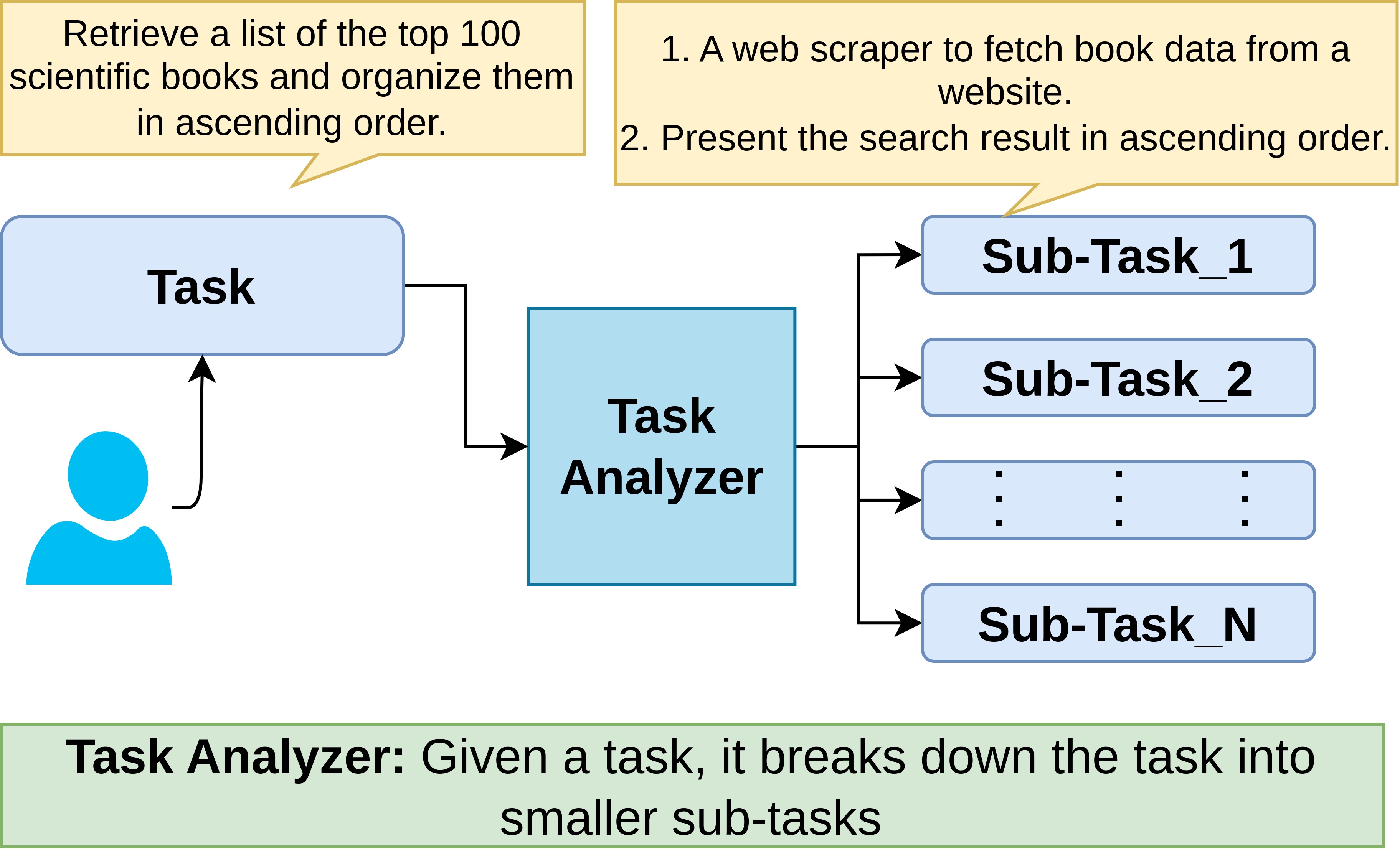
Figure 2: Task Analyzer Pipeline
Tool Master evaluates the outputs from the Task Analyzer to decide whether external tools are required. It provides a structured JSON output specifying names and descriptions of necessary tools, which are then either retrieved from the existing database or generated anew.
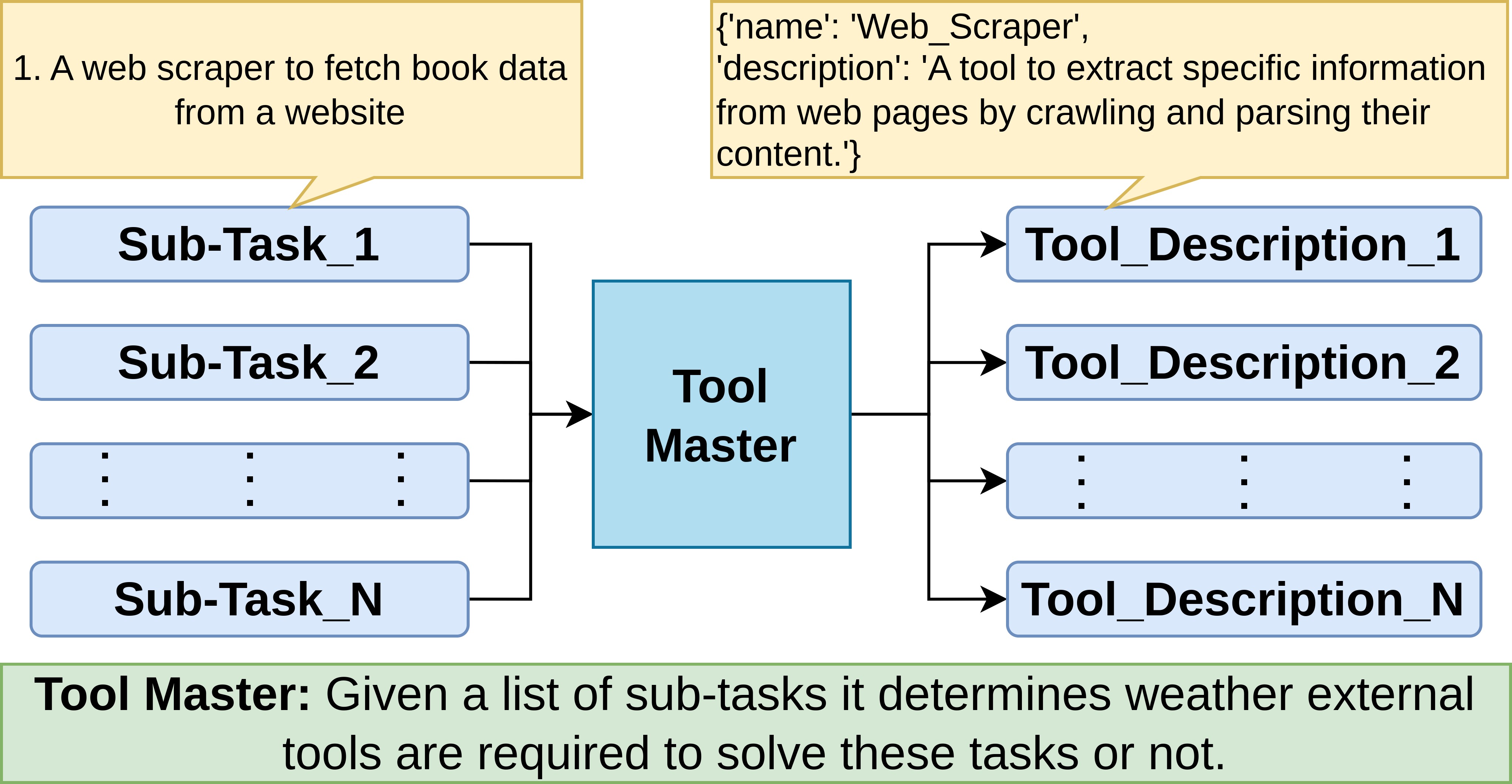
Figure 3: Tool Master Pipeline
Once the need for tools is identified, the tools are either retrieved from the Tool Dataset or generated using the Tool Generator component.
The Tool Database is an essential component of the ATLASS framework, storing all available tools in a JSON format, enabling efficient retrieval and reuse.
The Tool Selector accesses the Tool Dataset to ascertain the availability of required tools. It distinguishes between tools that need to be generated and those that can be retrieved, thereby optimizing the tool generation process.
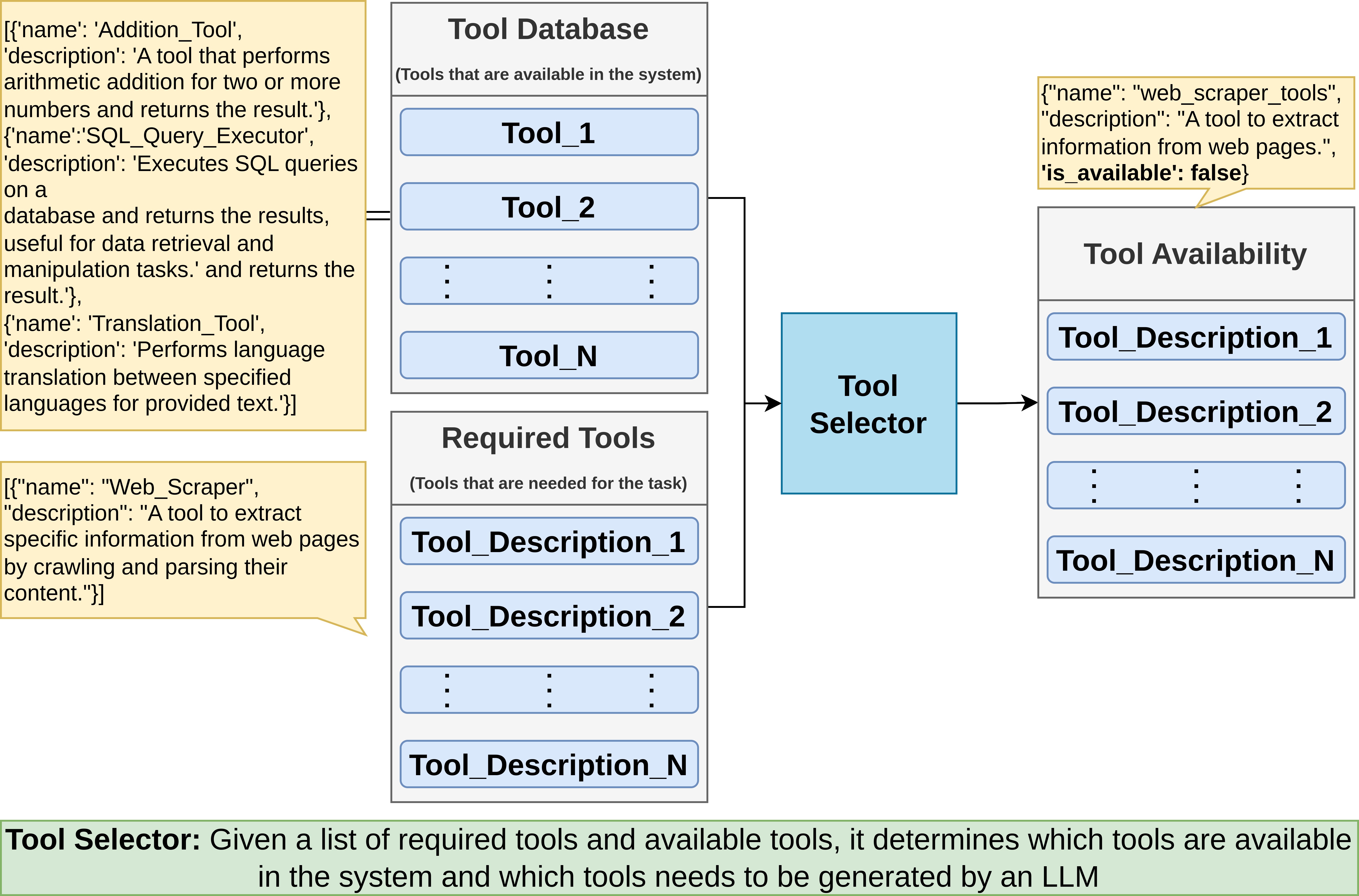
Figure 4: Tool Selector Pipeline
Tool generation is carried out by two subcomponents, handling both non-API-based and API-based requirements. The non-API-based tool generation uses the Python environment for code execution, while API-based tools are generated by fetching current API documentation, ensuring up-to-date functionality.
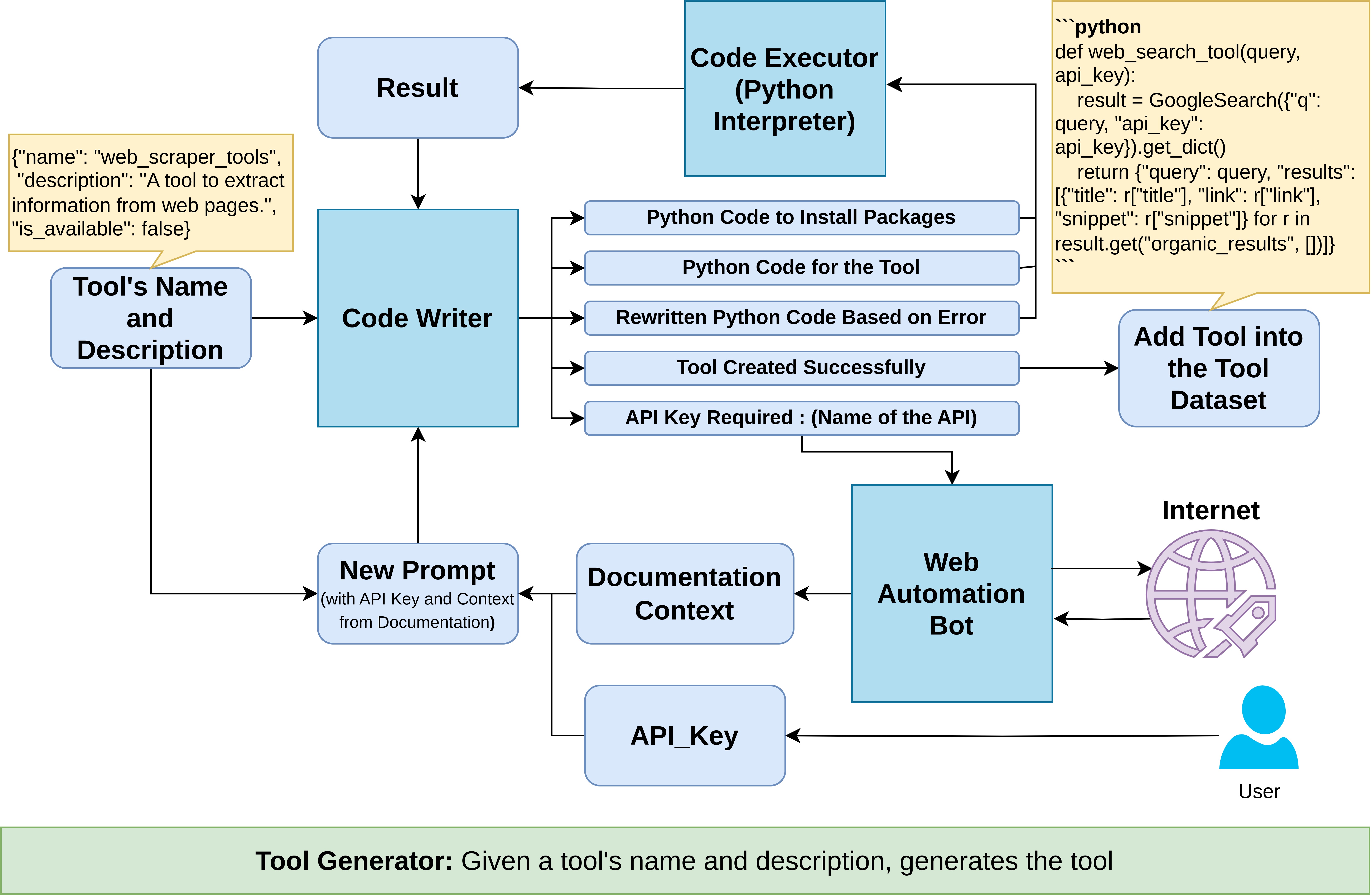
Figure 5: Tool Generator Pipeline
Solving Tasks
The final phase focuses on task execution utilizing the previously retrieved or generated tools, managed by the Task Solver component.
Task Solver
Task Solver uses generated or retrieved tools to effectively execute the given tasks. When no tools are required, it relies on the LLM's internal knowledge base to provide solutions.
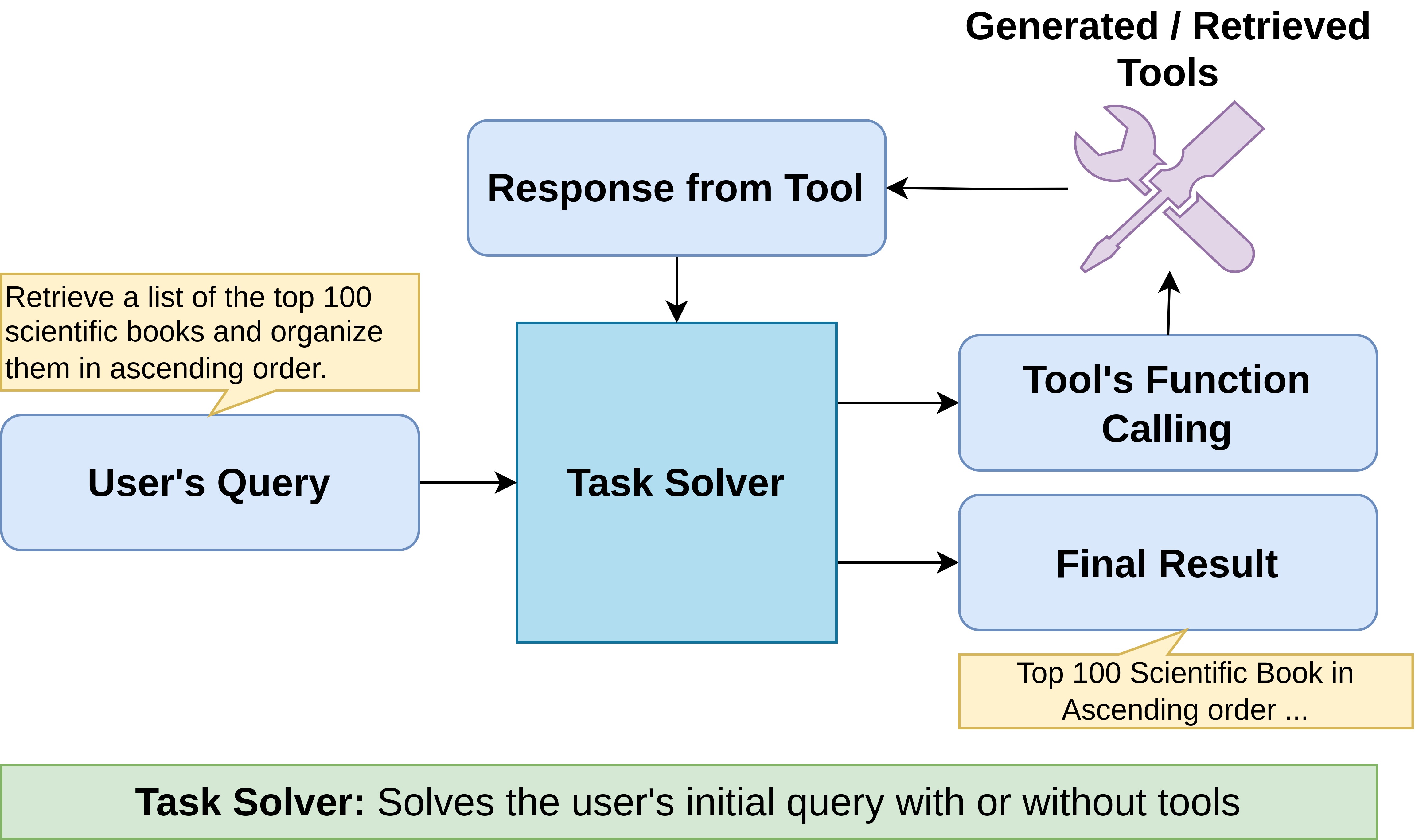
Figure 6: Task Solver Pipeline
Result Analysis
Extensive testing demonstrates that ATLASS significantly enhances task execution capabilities by dynamically generating reusable tools. Compared to frameworks like LATM, ATLASS supports more complex tasks, including those requiring API-based information retrieval and external library integration. The advanced tool selection mechanism also detects and reuses similar tools, enhancing adaptability.
ATLASS's Tool Selector effectively identifies equivalent tools within the system, optimizing reuse and minimizing redundancy. Its Tool Generator component demonstrates high effectiveness in generating versatile tools integrated with external libraries and APIs.
Efficiency of Inference
The framework efficiently reduces inference cost by leveraging the Tool Database to minimize the tools generated for each query. Cost analysis indicates reduced token usage when pre-existing tools are available, demonstrating the economic advantage of the ATLASS framework.
Conclusion
ATLASS provides a robust solution for dynamically generating and selecting tools for complex task solving using LLMs. By incorporating real-time web search capabilities and promoting tool reusability, ATLASS improves efficiency, adaptability, and the practical application of autonomous agents across diverse domains.
Limitations and Future Work
ATLASS currently relies heavily on the OpenAI GPT-4.0 model, which may limit adaptability. Future enhancements could include optimizing the Tool Generator for increased complexity and security, as well as integrating open-source LLMs for less demanding tasks. Improvements in API integration and key security are also essential to ensure comprehensive system security.





